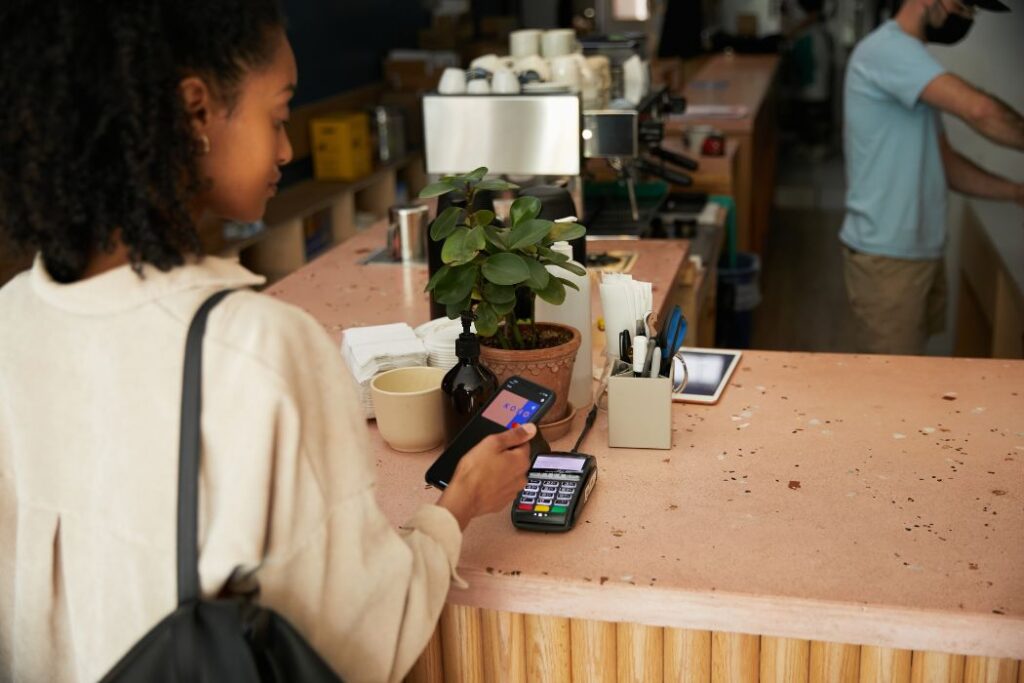After years of leaning on other players to deliver its products, Toronto-based challenger bank Koho Financial has taken a step towards becoming an actual bank.
Koho has been quietly working with regulators for more than two years as it seeks to bring more competition to an industry dominated by the country’s six largest banks and become the first Canadian FinTech startup to secure a Schedule 1 banking licence.
Without one, Koho’s financial innovation efforts have been confined to user experience and product construction. In an interview with BetaKit, Koho founder and CEO Daniel Eberhard argued that gaining access to the same playing field as the country’s banks would permit Koho to “innovate at an infrastructure level” and build better deposit and lending products for Canadians.
Eberhard hopes Koho’s progress towards a Canadian bank licence signals an opening of a market that has been “deeply uncompetitive” for a long time.
“This allows us to control our infrastructure, control our own destiny, have a seat at the table with direct payments infrastructure,” said Eberhard, who emphasized that these things will provide real benefits to Koho users.
Koho has now entered phase two of the three-stage process of obtaining a Canadian banking licence. The path is long, difficult, and requires final approval from the Office of the Superintendent of Financial Institutions (OSFI) and Canada’s Minister of Finance.
To aid its efforts to obtain one, Koho has added ex-Tangerine Bank CEO Peter Aceto to its leadership. During his nine years at Tangerine (formerly ING Direct), Aceto led the bank from its early formation through its acquisition by Scotiabank. Koho plans to have Aceto lead its banking division if and once it is fully established and regulated by OSFI.
Koho intends to make Koho Bank separate from Koho Tech and ensure each organization has a different culture. “I’m trying to create that distinction, both because I think that the bank needs to do things in a way that’s different than how we build product at Koho Tech, and because I want to protect the velocity of Koho Tech from the way that the bank needs to do things,” said Eberhard.
Per the January 26 notice published in the federal government’s Canada Gazette, Koho intends to provide deposit and lending products and services—including savings accounts, prepaid cards, and retail loans—to Canadian residents.
“If Koho had a bank licence today, we could pay the highest savings rate in the country,” claimed Eberhard.
RELATED: $86-million Series D extension has Koho targeting growth and profitability
Today, Koho already provides a variety of bank-like offerings, including credit building, spending, and high-interest savings products. The nine-year-old FinTech firm recently hit one million users and a $100-million CAD run rate—with revenue doubling year-over-year—and “hundreds of millions” on its loan book.
But like other Canadian FinTech startups, Koho currently relies on third-party partnerships with regulated players like Peoples Trust to deliver its financial products. A banking licence would remove limitations associated with those relationships.
According to Eberhard, banks typically make half of their money off of their balance sheet via net interest margin—or the difference between how much they buy and sell money for—while today, only one percent of Koho’s revenue comes from this. The CEO added that a banking licence would give Koho lots of opportunities on this front.
“What this actually opens up is a whole bunch of new ways for Koho to grow the revenue, to create value for users, to pay more on savings rates, lower the cost to borrow, all of those kinds of things,” said Eberhard. “[It] really just creates a bunch of optionality.”

Eberhard noted that Koho is also now doing nearly $10 billion annually in volume. “We’re meaningfully bigger than some of our vendors or partners,” he said. “There is a ‘control your own destiny’ component to this.”
While it has not all been smooth sailing for Koho, which underwent multiple rounds of layoffs in 2023, the company was able to top up its coffers late last year with an $86-million Series D extension and maintain its $800-million valuation from 2021 amid a tough market for FinTech firms and tech more broadly.
Big picture, Eberhard hopes Koho’s progress towards a Canadian bank licence signals an opening of a market that has been “deeply uncompetitive” for a long time.
“I think that there’s a long and wonderful history of banking in Canada,” he said. “I think we’ve done a very good job of managing systemic risk, and I think we’ve done a pretty not good job at building great products and a competitive ecosystem, particularly for folks that are living paycheque to paycheque in this country.”
Per OSFI’s website, Canada currently has 35 domestic Schedule 1 banks. OSFI told The Globe and Mail that since 2014, it has received 12 applications for Schedule 1 banks, 10 of which were granted licences. One of those applicants was Questrade, which applied for a banking licence in 2019. Questrade CEO Edward Kholodenko told The Globe that after pandemic delays, it is still proceeding with the process and “could see an approval in about 12 months.”
Despite looking more and more like Canada’s next big bank, fellow Canadian FinTech firm Wealthsimple has no plans to apply for a banking licence of its own at this time, a company spokesperson told The Globe. The spokesperson noted that Wealthsimple’s approval as a securities dealer and Payments Canada member, combined with its existing partnerships with banks, have enabled it to build its products without becoming a bank.
In 2022, Wealthsimple also became the first FinTech startup to be approved by the Bank of Canada for direct settlement, giving it direct access to the country’s new Real-Time Rail (RTR) payment system once it launches.
“We’re going to be in those rooms, and we’re going to be a vocal proponent for where I think this market needs to get better.”
Canada’s slow, repeatedly delayed rollout of both RTR and open banking—or consumer-driven finance—has been a major source of contention for the country’s FinTech startups. Industry advocates have urged the feds to move faster to help bring more competition in Canada’s highly concentrated banking sector. While the federal government’s latest Fall Economic Statement offered some new promises on these fronts, Eberhard and others remain skeptical.
“It’s pretty easy to relegate FinTechs to the sidelines in this country and just talk to the banks,” said Eberhard, who argued that securing a banking licence would shift the balance of this equation for Koho. “We’re going to be in those rooms, and we’re going to be a vocal proponent for where I think this market needs to get better and is not serving folks.”
Becoming a bank will still require a lot of work and could take Koho another two years or so. Eberhard was frank that there is no guarantee that the company will complete the process. For instance, OSFI could ultimately determine that the FinTech startup is not ready, or Koho could choose to walk away from the process should the overhead associated with being a bank prove detrimental to its business.
“There’s a receptivity from both parties to recognize that this is a bit of a new machine that is going to push some boundaries and is going to do some things differently, but some of those guardrails that are in place are very important and useful guardrails,” said Eberhard.
With files from Douglas Soltys.
Feature image courtesy Koho.

